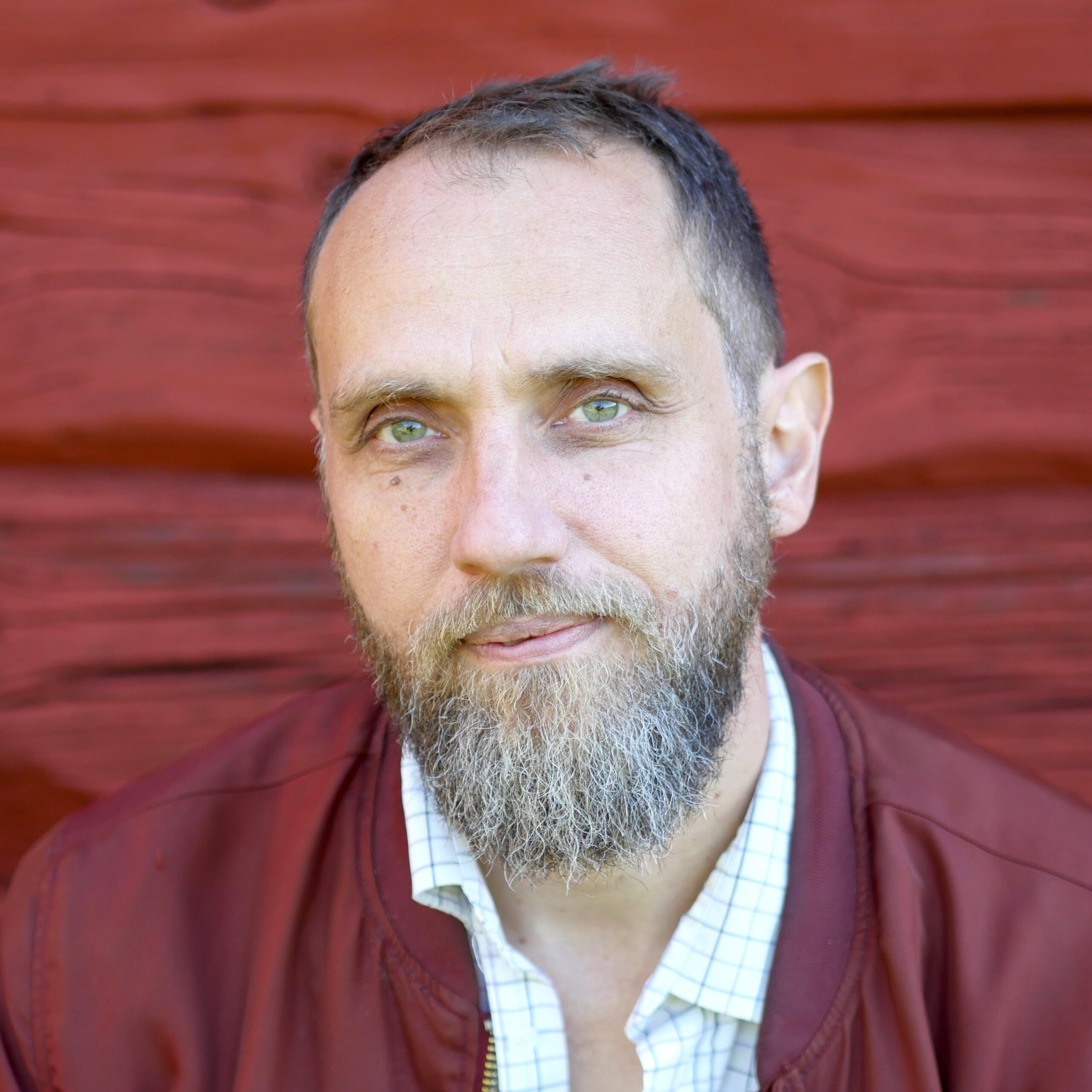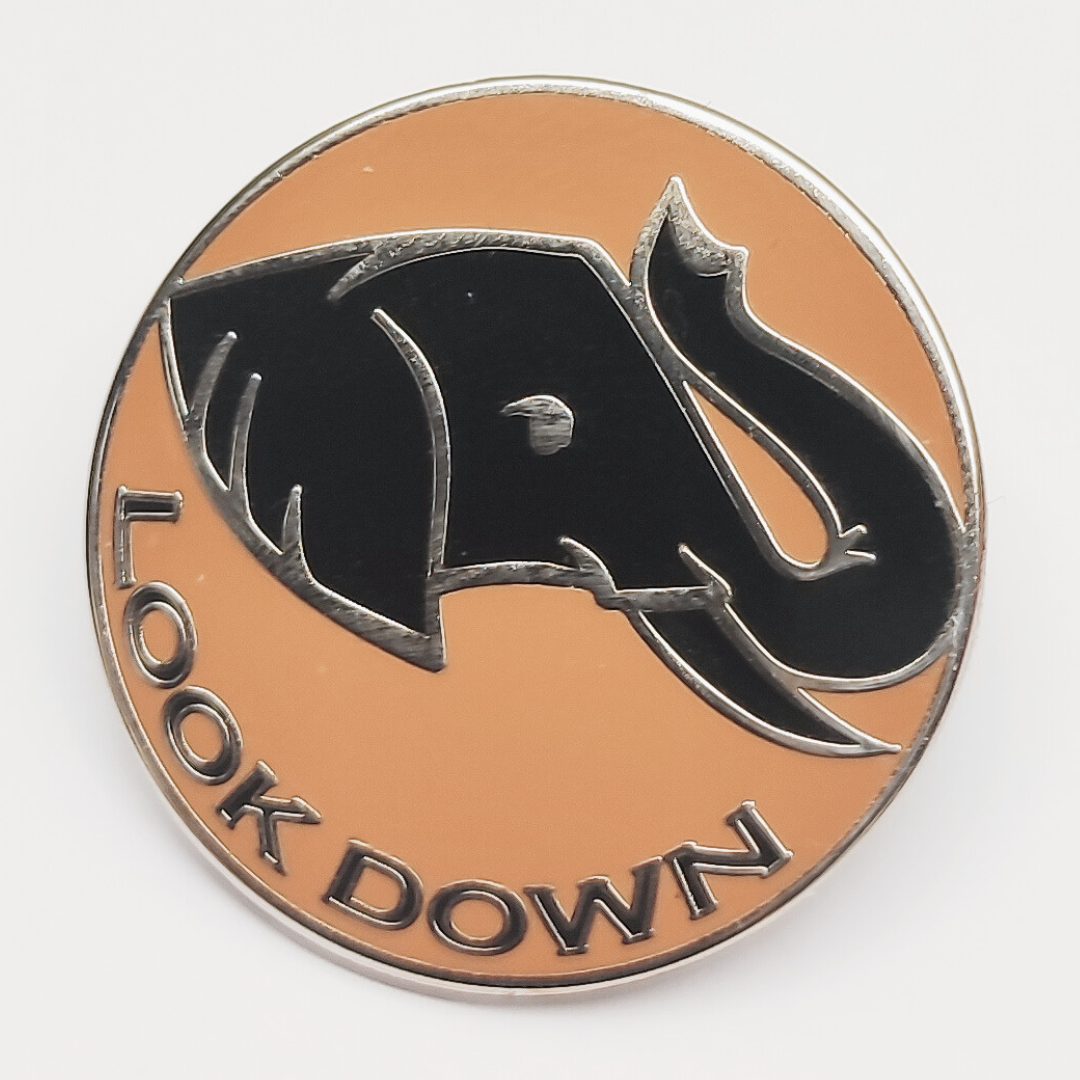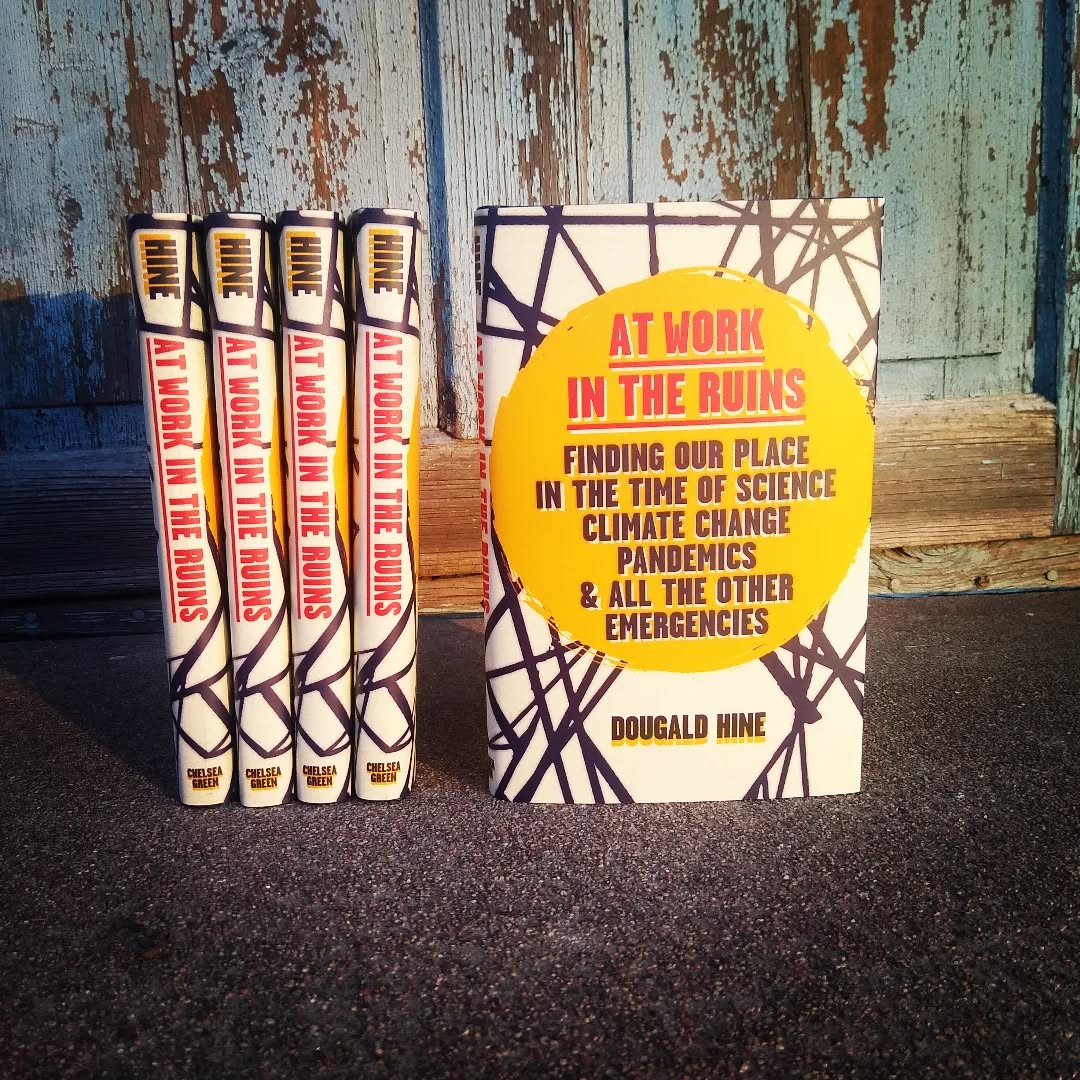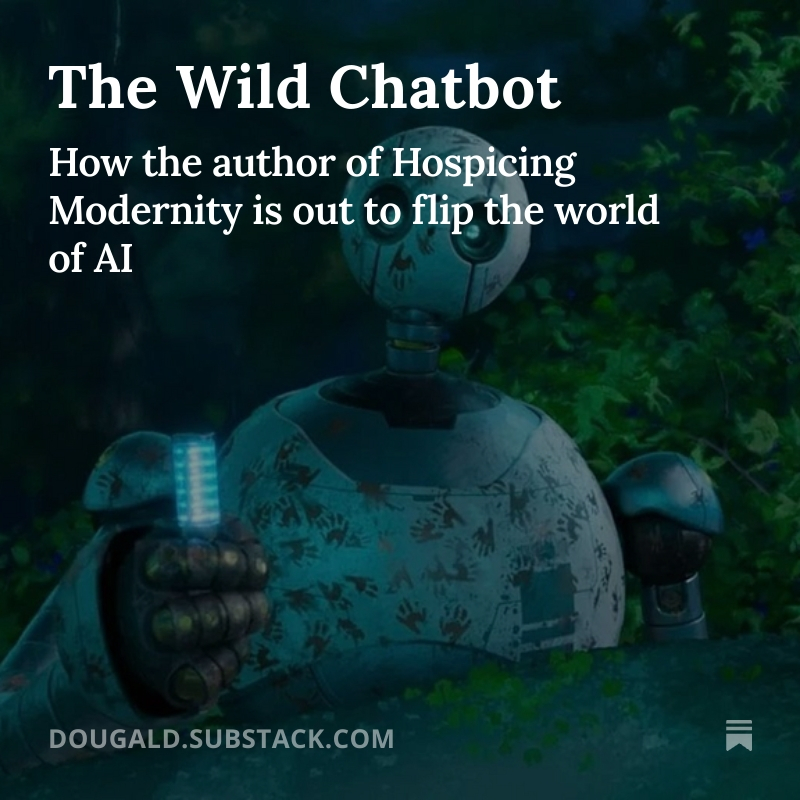WELCOME
My name is Dougald Hine. I am the author of At Work in the Ruins, co-founder of a school called HOME and a project called Dark Mountain. I host a couple of podcasts and publish new writing regularly on Substack.
Through all of this, I go looking for ways to make sense of the troubles around and ahead of us, the deep roots of how we got here, and the work that might contribute to a world worth living for.
You could say I’m a trafficker between worlds: smuggling stories, maps and ways of seeing across the various borders that are meant to divide “us” from “them”.
If you’re looking for a way to introduce me to an audience, you’ll find a more conventional bio and associated materials halfway down the About page on this site.
Dougald Hine, February 2025

Current trajectory: Deep in the writing zone, working on the follow-up to At Work in the Ruins. This means I’m keeping a lower profile in 2025, though I do have a mini-tour of the Netherlands coming up in November.
“It was an education geared to turn its brightest sons and daughters into intellectual Edward Scissorhands, minds skilled at taking a blade to anything, but unequipped for tenderness.”
The editors of new journal Romanticon commissioned me to write their inaugural essay – and it turned out to be a winding story involving a man with two graves, a hole with no bottom and a conversation with no end.
“This is what Vanessa and her colleagues are up to, so far as I can see: they are making Magic Eye pictures for learning machines, practicing a set of moves by which to flip the perspective of an AI and turn its self-perception inside out.”
When my friend and co-conspirator Vanessa Machado de Oliveira revealed that she had co-written a book with a ChatGPT bot, I needed to understand what this could have to do with the work of “hospicing modernity”.

Wear the pin, find the others
Where do you turn, when you no longer believe that the way of living we grew up taking for granted can be made “sustainable”? Wear the pin to find others who are asking these questions, to engage the curious and start conversations.
The Shoe Shop
Since 2021, my family has been making a home in an old shoe shop in a small town, thirty miles north of Uppsala. The filmmaker Mattias Olsson of Campfire Stories has been following our journey.
The Kitchen Table
A story of love, food & finding our way home
First published in the Dark Kitchen issue of Dark Mountain, this essay tells the story of how Anna and I came to a school called HOME.
“The two of us met around a shared sense of the virtues of hospitality and conviviality. Not just a liking for these things, but an intuition that they matter in ways that have been poorly marked on the maps of the societies into which we were born, and that a good deal of harm and suffering results from this. The art of invitation, the roles of host and guest: these go a long way back in the story of what it is to be human, they have been practised in hard times, held as sacred obligations, woven into myths. Yet the logic of scarcity that runs beneath the seeming abundance of our modern ways of living has robbed many of us of that inheritance, breeding loneliness and a restless, unsatisfying consumption.”
A World Worth Living For
In September 2024, I visited North America for the first time in fifteen years. Midway through that tour, the filmmaker Katie Teague sat me down in Washington, DC to record this interview. The result is a good way into my recent work.

